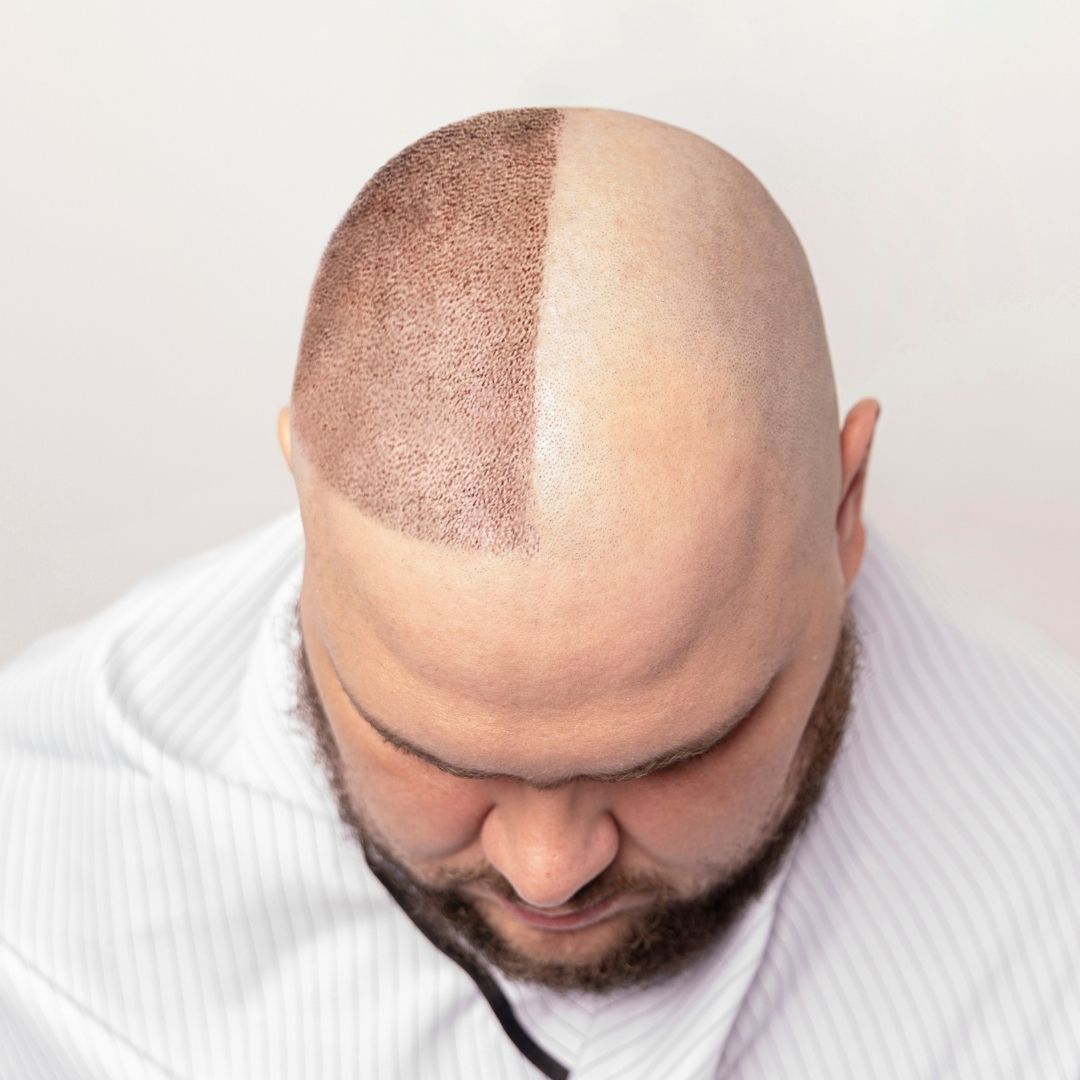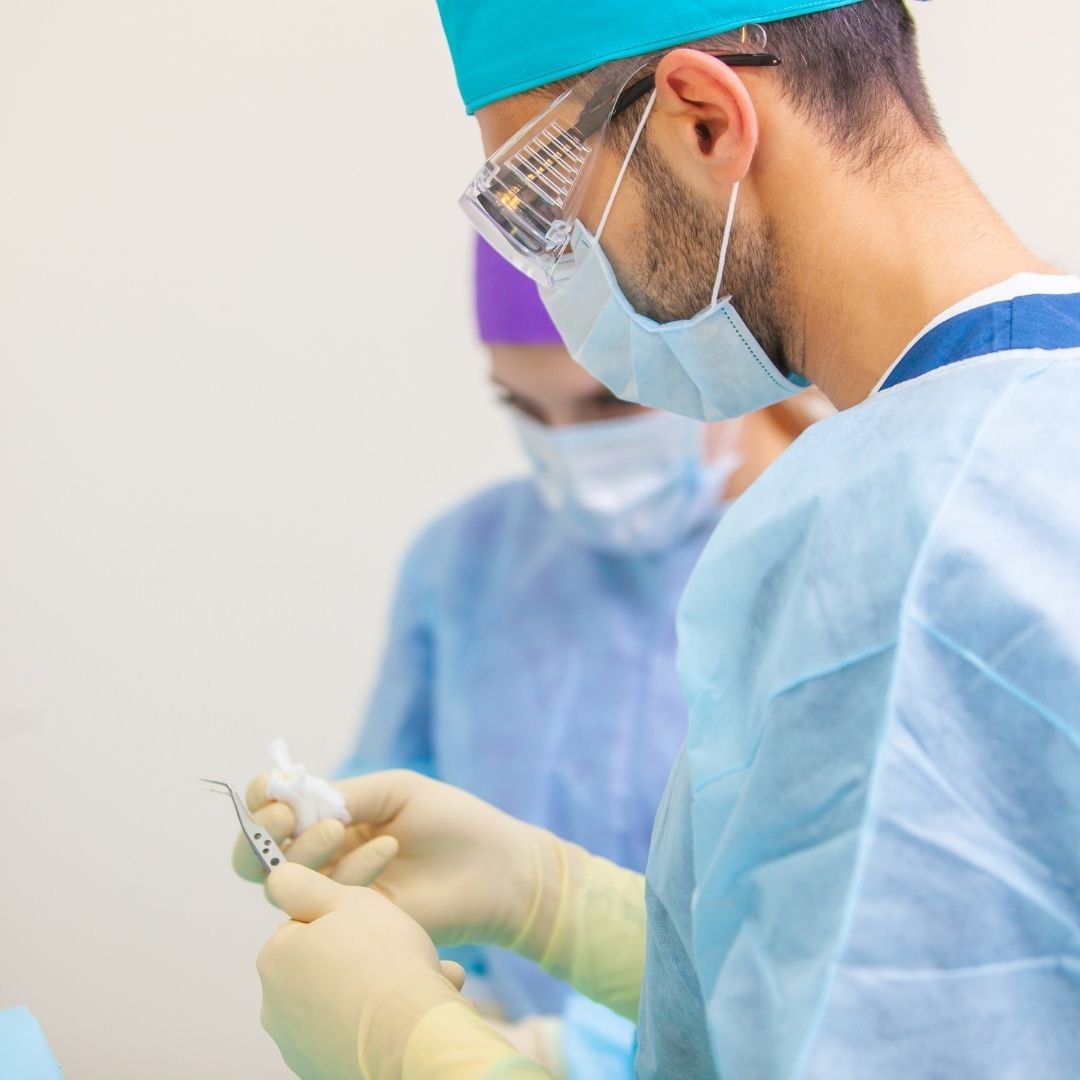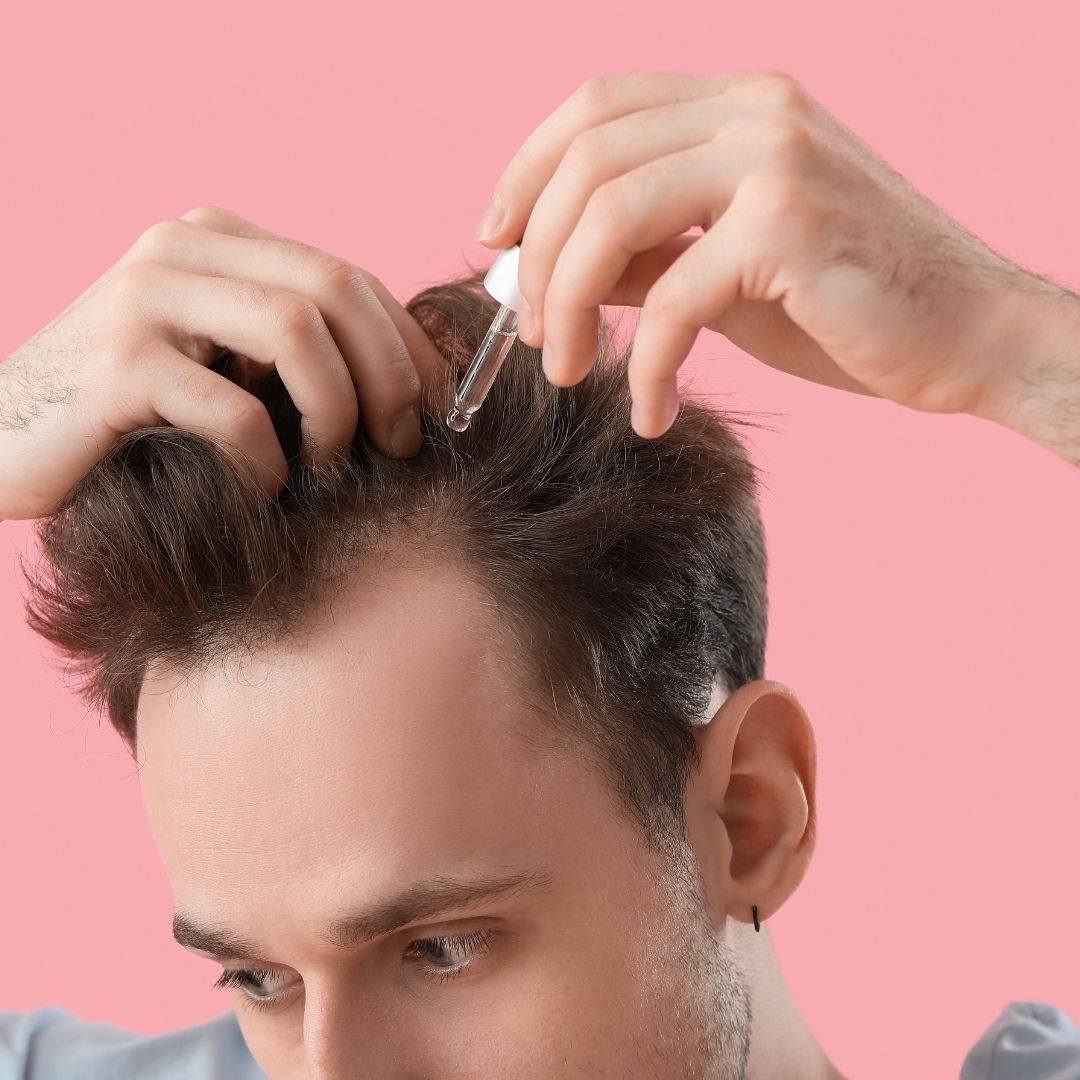.jpg)
Hair Transplant Recovery
If you are considering a hair transplant, one of the most important things to consider is the recovery process. A successful hair transplant procedure requires careful planning, but it’s also essential to take the necessary steps to ensure a smooth healing process. In this ultimate guide to FUE recovery, we’ll take a closer look at what to expect during the recovery period and provide some tips and tricks to help you achieve a smooth healing process.
What is Hair Transplant Recovery?
Hair transplant recovery refers to the period of time following a hair transplant procedure during which your scalp needs time to heal and recover. The length of the recovery period varies depending on the type of procedure performed and the individual’s healing capacity. However, in general, it takes around 10-14 days for the initial healing process, while the complete recovery process can take up to 12 months.
Hair Transplant Recovery Timeline
The recovery timeline after a hair transplant procedure can be broken down into several stages:
The first 24-48 hours: During this time, you may experience some discomfort, swelling, and redness in the treated areas. Your surgeon will likely provide you with pain medication to help manage any discomfort.
Days 2-7: By this point, the swelling and redness should start to subside. You may still experience some discomfort, but it should be more manageable. You will also be able to start washing your hair gently.
Days 7-10: At this stage, the scabs and crusts that have formed on the scalp should start to fall off. You should still avoid any strenuous activities and avoid scratching or rubbing your scalp.
Weeks 2-4: During this period, your transplanted hair may start to fall out. This is normal and is known as “shock loss.” You may also experience some itching, but it is essential to avoid scratching your scalp.
Months 3-6: By this point, you should start to see some new hair growth in the treated areas. However, it is essential to continue to avoid any strenuous activities or exposure to the sun.
Months 6-12: At this stage, you should start to see more significant hair growth in the treated areas. Your hair will continue to grow and thicken over the next several months.
Hair Transplant Recovery Time
The recovery time after hair transplant surgery can vary depending on various factors such as the technique used, the extent of the surgery, and the patient’s overall health condition. In general, most patients can expect to return to their daily routine within 7 to 10 days after the surgery, but full recovery can take up to 12 months.
During the first few days after the surgery, you may experience swelling, redness, and scabbing around the transplanted area, which is normal and expected. Your surgeon may prescribe medications to alleviate pain and reduce swelling. You may also need to wear a bandage or a special cap to protect the transplanted area and promote healing.
Is Hair Transplant Recovery Painful?
Hair transplant surgery is generally considered a safe and minimally invasive procedure, and most patients experience little to no pain during the surgery itself. However, it is normal to experience some discomfort and pain during the recovery period, especially within the first few days after the surgery. Your surgeon in Turkiye may prescribe pain medications to alleviate any discomfort and reduce swelling. You may also need to wear a bandage or a special cap to protect the transplanted area and promote healing.
Do’s and Don’ts After Hair Transplant
During the recovery period, it is essential to follow some do’s and don’ts to ensure successful hair growth and prevent any complications. Here are some important things to keep in mind:
Do’s:
Keep the scalp clean and dry to prevent infections. Your surgeon may recommend using a mild shampoo and a special spray to keep the scalp clean.
Take medications as prescribed by your surgeon to prevent infections and promote hair growth.
Wear loose and comfortable clothing that does not rub against the transplanted area.
Stay hydrated by drinking plenty of water and other fluids to promote healing.
Eat a healthy and balanced diet that is rich in vitamins and minerals to support hair growth.
Don’ts:
Avoid touching or scratching the transplanted area, as it can cause bleeding, infection, and damage to the newly transplanted hair follicles.
Do not smoke or drink alcohol for at least two weeks after the surgery, as it can slow down the healing process and increase the risk of infections.
Avoid strenuous activities and exercise for at least two weeks after the surgery, as it can cause sweating and damage to the transplanted area.
Do not expose the scalp to direct sunlight or tanning beds for at least four weeks after the surgery, as it can cause sunburn and damage to the newly transplanted hair follicles.
Sleeping After Hair Transplant
During the recovery period, it is essential to sleep in a specific position to avoid putting pressure on the transplanted area. Here are some tips to help you sleep comfortably after FUT hair transplantation surgery:
Sleep on your back with your head elevated on pillows for the first two weeks after the surgery to reduce swelling and promote healing.
Avoid sleeping on your stomach or sides, as it can put pressure on the transplanted area and damage the newly transplanted hair follicles.
Use a travel pillow or a donut-shaped pillow to support your neck and head while sleeping on your back.
Finally, Avoid sleeping in a hot or humid environment, as it can cause sweating and increase the risk of infection.
Success Rate of Hair Transplants in Türkiye
Türkiye is one of the most popular destinations for cosmetic surgery due to its high success rates and affordable prices. According to recent studies, the success rate of hair transplants in Türkiye is around 90% to 95%, which is comparable to other developed countries such as the United States and the United Kingdom. The success rate may vary depending on various factors such as the surgeon’s experience, the technique used, and the patient’s overall health condition.
The Study of Hair Transplant Recovery
Recent studies have indicated that the success rate of hair transplants in Türkiye is comparable to that of other developed countries, such as the United States and the United Kingdom, with a range of approximately 90% to 95%. These findings are significant for individuals considering hair transplant procedures, as they demonstrate the effectiveness of such surgeries and suggest that patients can expect favorable outcomes in terms of hair regrowth. Research published in the Journal of Dermatological Treatment in 2021, which analyzed a cohort of 200 hair transplant patients in Türkiye, revealed a success rate of 92% in terms of patient satisfaction and hair regrowth after the procedure. This study reinforces the high success rates of hair transplants in Türkiye, providing potential patients with valuable insights into the reliability of the procedure.
Conclusion
Hair transplant surgery can be a life-changing procedure for people suffering from hair loss. However, it is essential to understand the recovery process and follow the recommended guidelines to ensure successful hair growth and prevent any complications. By following the tips and tricks mentioned in this ultimate guide to hair transplant recovery, you can have a smooth healing process and achieve the desired results. Remember to consult with your surgeon at Healthy Turkiye if you have any questions or concerns during the hair transplant recovery period.
.jpg)



